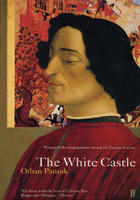To X, in memory of heroic times
The Chilean Girls
That was a fabulous summer. Pérez Prado and his twelve-professor orchestra came to liven up the Carnival dances at the Club Terrazas of Miraflores and the Lawn Tennis of Lima; a national mambo championship was organized in Plaza de Acho, which was a great success in spite of the threat by Cardinal Juan Gualberto Guevara, Archbishop of Lima, to excommunicate all the couples who took part; and my neighborhood, the Barrio Alegre of the Miraflores streets Diego Ferré, Juan Fanning, and Colón, competed in some Olympic games of mini-soccer, cycling, athletics, and swimming with the neighborhood of Calle San Martín, which, of course, we won.
Extraordinary things happened during that summer of 1950. For the first time Cojinoba La?as fell for a girl—the redhead Seminauel—and she, to the surprise of all of Miraflores, said yes. Cojinoba forgot about his limp and from then on walked around the streets thrusting out his chest like Charles Atlas. Tico Tiravante broke up with Ilse and fell for Laurita, Víctor Ojeda fell for Ilse and broke up with Inge, Juan Barreto fell for Inge and broke up with Ilse. There was so much sentimental restructuring in the neighborhood that we were in a daze, people kept falling in and out of love, and when they left the Saturday night parties the couples weren't always the same as when they came in. "How indecent!" said my scandalized aunt Alberta, with whom I had lived since the death of my parents.
The waves at the Miraflores beaches broke twice, the first time in the distance, two hundred meters from shore, and that's where those of us who were brave went to ride them in without a board, and they carried us a hundred meters to the spot where they died only to reform into huge, elegant waves and break again in a second explosion that carried bodysurfers smoothly to the pebbles on the beach.
During that extraordinary summer, at the parties in Miraflores, everybody stopped dancing waltzes, corridos, blues, boleros, and huarachas because the mambo had demolished them. The mambo, an earthquake that had all the couples—children, adolescents, and grownups—at the neighborhood parties moving, jumping, leaping, and cutting a figure. And certainly the same thing was happening outside Miraflores, beyond our world and our life, in Lince, Bre?a, Chorrillos, or the even more exotic neighborhoods of La Victoria, downtown Lima, Rímac, and El Porvenir, where we, the Miraflorans, had never set foot and didn't ever plan to set foot.
And just as we had moved on from waltzes and huarachas, sambas and polkas, to the mambo, we also moved on from skates and scooters to bicycles, and some, Tato Monje and Tony Espejo, for example, to motor scooters, and even one or two to cars, like Luchín, the overgrown kid in the neighborhood, who sometimes stole his father's Chevrolet convertible and took us for a ride along the seawalls, from Terrazas to the stream at Armendáriz, at a hundred miles an hour.
But the most notable event of that summer was the arrival in Miraflores, all the way from Chile, their distant country, of two sisters whose flamboyant appearance and unmistakable way of speaking, very fast, swallowing the last syllables of words and ending their sentences with an aspirated exclamation that sounded like pué, threw all of us Miraflores boys, who had just traded our short pants for long trousers, for a loop. And me more than the rest.
The younger one seemed like the older one, and vice versa. The older one was named Lily and was a little shorter than Lucy, who was a year younger. Lily couldn't have been more than fourteen or fifteen years old, and Lucy no more than thirteen or fourteen. The adjective "flamboyant" seemed invented just for them, but though Lucy was flamboyant it wasn't to the same degree as her sister, not only because her hair was shorter and not as blond as Lily's, and because she dressed more soberly, but also because she was quieter, and when it was time to dance, though she also cut a figure and moved her waist with a boldness no Miraflores girl dared attempt, she seemed like a modest, inhibited, almost colorless girl compared to that spinning top, that flame in the wind, that will-o'-the-wisp that Lily became when the records were all stacked on the automatic changer, the mambo exploded, and we started to dance.
Lily danced with a delicious rhythm and a good deal of grace, smiling and softly singing the words to the song, raising her arms, showing her knees, and moving her waist and shoulders so that her entire body, to which her skirts and blouses clung so perversely and with so many curves, seemed to shake, vibrate, and take part in the dance from the ends of her hair down to her feet. Whoever danced the mambo with her always had a hard time, because how could anyone go on and not be ensnared by the demonic whirlwind of those madly leaping legs and feet? Impossible! You were left behind from the beginning, very conscious of the fact that the eyes of all the couples were focused on Lily's mambistic feats. "What a girl!" said my aunt Alberta indignantly. "She dances like Tongolele, like a rumbera in a Mexican movie. Well, let's not forget she's Chilean," she'd say in response to herself, "and virtue isn't the strong point of women in that country."
I fell in love with Lily like a calf, which is the most romantic way to fall in love—it was also called heating up to a hundred degrees—and during that unforgettable summer, I fell three times. The first, in the upper balcony of the Ricardo Palma, the movie theater in Parque Central in Miraflores, during the Sunday matinee, and she told me no, she was still very young to have a boyfriend. The second time, at the skating rink that opened that summer at the foot of Parque Salazar, and she told me no, she had to think about it, because though she liked me a little, her parents had asked her not to have a boyfriend until she finished the fourth year and she was still in the third. And the last time, a few days before the trouble, in the Cream Rica on Avenida Larco, while we were having a vanilla milk shake, and of course, again she said no, why would she say yes if we seemed to be going steady just the way we were? Weren't we always together at Marta's when we played truth or dare? Didn't we sit together on the Miraflores beach? Didn't she dance with me more than anybody else at parties? Then why would she give me a formal yes if all of Miraflores already thought we were going steady? With her model's looks, her dark mischievous eyes, and her small mouth with full lips, Lily was the incarnation of coquettishness.
"I like everything about you," I would tell her. "But what I like best is the way you talk." It was funny and original because of its intonation and musicality, so different from that of Peruvian girls, and also because of certain expressions, words, and sayings that left the boys in the neighborhood in the dark, trying to guess what they meant and if they contained a hidden joke. Lily spent her time saying things with double meanings, asking riddles, or telling jokes so risqué they made the girls in the neighborhood blush. "Those Chilean girls are terrible," my aunt Alberta declared, taking off and putting on her eyeglasses with the air of a high-school teacher concerned that those two strangers would cause the disintegration of Miraflores morality.
In the early years of the 1950s there were still no tall buildings in Miraflores, a neighborhood of one-story houses—two at the most—and gardens with their inevitable geraniums, poincianas, laurels, bougainvilleas, and lawns and verandas along which honeysuckle or ivy climbed, with rocking chairs where neighbors waited for nightfall, gossiping or inhaling the scent of the jasmine. In some parks there were ceibo trees thorny with red and pink flowers, and the straight, clean sidewalks were lined with frangipani, jacaranda, and mulberry trees, a note of color along with the flowers in the gardens and the little yellow D'Onofrio ice-cream trucks—the drivers dressed in their uniforms of white smocks and little black caps—that drove up and down the streets day and night, announcing their presence with a Klaxon whose slow ululation had the effect on me of a primitive horn, a prehistoric reminiscence. You could still hear birds singing in that Miraflores, where families cut a pine branch when their girls reached marriageable age, because if they didn't, the poor things would become old maids like my aunt Alberta.
Lily never said yes, but the fact is that except for that formality, in everything else we seemed to be going steady. We'd hold hands at matinees in the Ricardo Palma, the Leuro, the Montecarlo, and the Colina, and though it couldn't be said that in the darkness of the balcony we were making out like other, older couples—making out was a formula that included everything from anodyne kisses to the tongue-sucking and wicked touching that had to be confessed to the priest on first Fridays as mortal sins—Lily let me kiss her on the cheek, the edge of her ears, the corner of her mouth, and sometimes, for just a second, she'd touch her lips to mine and move them away with a melodramatic expression: "No, no, absolutely not that, Slim." My friends from the neighborhood made fun of me: "You're like a calf, Slim, you're turning blue, Slim, that crush is melting you, Slim." They never called me by my real name—Ricardo Somocurcio—but always by my nickname. They weren't exaggerating at all: I was so hot for Lily I was burning up.
That summer, because of her, I had a fistfight with Luquen, one of my best friends. During one of those get-togethers the girls and boys of the neighborhood would have at the corner of Colón and Diego Ferré, in the garden of the Chacaltanas, Luquen, trying to be smart, suddenly said the Chilean girls were cheap because they were bleached blondes, not real ones, and in Miraflores, behind my back, people had started to call them the Camp Followers. I aimed one straight at his chin, which he ducked, and we went to settle our differences in a fight at the corner of the Reserva seawall, next to the cliffs. We didn't speak to each other for an entire week until, at the next get-together, the girls and boys of the neighborhood made us be friends again.
Every afternoon Lily liked to go to a corner of Parque Salazar overgrown with palm trees, floripondios, and bellflowers, and from the red-brick wall we would contemplate all of Lima bay like the captain of a ship contemplating the sea from the bridge. If the sky was clear—and I'd swear the sky was cloudless all that summer and the sun shone on Miraflores every single day—in the background, on the ocean's horizon, you could see the red disk in flames, taking its leave with blazing beams and fiery lights as it sank into the waters of the Pacific. Lily's face focused with the same fervor she brought to taking communion at twelve o'clock Mass at the Parque Central church, her gaze fixed on the incandescent ball, waiting for the moment when the sea swallowed up the last beam to formulate the wish that the great star, or God, would grant. I had a wish too, only half believing it would come true. Always the same one, of course: that she would finally say yes, that we'd go steady, make out, love each other, become engaged, and marry and end up in Paris, rich and happy.
From the time I reached the age of reason I had dreamed of living in Paris. My papa was probably to blame, and those books by Paul Féval, Jules Verne, Alexandre Dumas, and so many others he made me read before he died in the accident that left me an orphan. Those novels filled my head with adventures and convinced me that in France life was richer, happier, more beautiful, more everything than anywhere else. That was why, in addition to my English classes at the Instituto Peruano Norteamericano, I persuaded my aunt Alberta to enroll me at the Alliance Fran?aise on Avenida Wilson, where I'd go three times a week to learn the language of the Frenchies. Though I liked to have a good time with my pals from the neighborhood, I was a real bookworm, got good grades, and loved languages.
When my funds allowed, I'd invite Lily to have tea—to say lonche hadn't become fashionable yet—at the Tiendecita Blanca, with its snow-white fa?ade, its little tables and umbrellas on the sidewalk, its pastries out of the Arabian Nights—iced ladyfingers! almond-andhoney cakes filled with blancmange! cream puffs!—bounded by Avenida Larco, Avenida Arequipa, and the Alameda Ricardo Palma shaded by exceedingly tall Ficus trees.
Going to the Tiendecita Blanca with Lily for ice cream and a piece of pastry was a joy almost always clouded by the presence of Lucy, her sister, whom I also had to drag along every time we went out. She was not at all uncomfortable being the third wheel, interfering with my making out, preventing me from talking alone with Lily and telling her all the pretty things I dreamed of murmuring into her ear. But even though our conversation had to avoid certain subjects because Lucy was nearby, it was priceless to be with her, to see how her curls danced whenever she moved her head, the mischievousness in her eyes the color of dark honey, to hear that way she had of talking, and at certain careless moments, at the low-cut neckline of her close-fitting blouse, to catch a glimpse of the tops of those round little breasts that were already pointing out, tender buds undoubtedly as firm and soft as young fruits.
"I don't know what I'm doing here like a third wheel with you two," Lucy would sometimes say apologetically. I lied to her: "What an idea, we're happy to have your company, aren't we, Lily?" Lily would laugh with a mocking demon in her eyes and that exclamation: "Sure, puuuuu …"
Taking a stroll along Avenida Pardo under the alameda of Ficus trees invaded by songbirds, between the houses on both sides of the street where little boys and girls, watched over by nannies in starched white uniforms, ran around gardens and verandas, was a ritual of that summer. Since Lucy's presence made it difficult for me to talk to Lily about the things I would have liked to talk about, I steered our conversation toward insipid subjects: plans for the future, for example, like going to Paris to fill a diplomatic post when I had my law degree—because there, in Paris, living was living, France was the country of culture—or perhaps going into politics to help our poor Peru become great and prosperous again, which would mean I'd have to postpone traveling to Europe for a little while. And what about them, what would they like to be, to do, when they grew up? Sensible Lucy had very precise objectives: "First of all, finish school. Then, get a good job, maybe in a record store, that must be a lot of fun." Lily was thinking of a travel agency or being a stewardess for an airline, if she could convince her parents, that way she'd travel free all around the world. Or maybe a movie star, but she'd never let them take a picture of her in a bikini. Traveling, traveling, seeing every country was what she'd like the most. "Well, at least you've already seen two, Chile and Peru, what else do you want?" I'd say. "Compare that to me, I've never even left Miraflores."
The things Lily recounted about Santiago were for me a foretaste of Parisian heaven. I listened to her with so much envy! In that city, unlike here, there were no poor people or beggars in the streets, parents allowed boys and girls to stay at parties until dawn and dance cheek to cheek, and unlike here, you never saw old people like mothers and aunts spying on young people when they danced just to scold them if they went too far. In Chile boys and girls were allowed to see adult movies and, from the time they were fifteen, smoke without hiding. Life was more fun there than in Lima because there were more movies, circuses, theaters, shows, and parties with live orchestras, and iceskating shows and ballet companies and musicals were always coming to Santiago from the United States, and no matter what job they had, Chileans earned two or three times more than Peruvians did.
But if all this was true, why had the parents of the Chilean girls left that marvelous country and come to Peru? Because at first glance they weren't rich but very poor. For the moment they didn't live the way we did, the girls and boys of Barrio Alegre, in houses with butlers, cooks, maids, and gardeners, but in a little apartment in a narrow, three-story building on Calle Esperanza, near the Gambrinus restaurant. And in the Miraflores of those years, in contrast to what would happen sometime later when tall buildings began to spring up and the little houses disappeared, the only people who lived in apartments were the poor, that diminished species of human to which—ah, how sad—the Chilean girls seemed to belong.
I never saw their parents. They never took me or any neighborhood girl or boy home. They never celebrated a birthday or gave a party or invited us to have tea and play, as if they were ashamed to let us see the modesty of the place where they lived. The fact that they were poor and embarrassed by everything they didn't have filled me with compassion, increased my love for the Chilean girl, and inspired me with altruistic plans: "When Lily and I get married, we'll bring her whole family to live with us."
But my Miraflores friends, especially the girls, were suspicious about Lucy and Lily never opening their doors to us. "Are they so hungry they can't even organize a party?" they asked. "Maybe it's not because they're poor, maybe they're just stingy," said Tico Tiravante, trying to make things better and only making them worse.
The kids in the neighborhood suddenly began to speak badly of the Chilean girls because of their makeup and the clothes they wore, making fun of their scant wardrobe—we all knew by heart those skirts, blouses, and sandals that they combined in every possible way to hide the fact they had so little—and filled with righteous indignation, I'd defend them saying that this talk was just envy, green envy, poisonous envy, because at parties the Chilean girls never sat out a dance, all the boys lined up to dance with them—"They let them rub up, of course they don't sit out a dance," replied Laura—or because, at the get-togethers in the neighborhood, at games, at the beach, or in Parque Salazar, they were always the center of attention and all the boys crowded around them, while the rest of the girls … "They're show-offs and brazen and with them you boys dare to tell the dirty jokes we wouldn't let you tell us!" Teresita counterattacked. And, finally, because the Chilean girls were great-looking, modern, smart, while the Barrio Alegre girls were prudish, backward, old-fashioned, narrow-minded, and bigoted. "And proud of it!" said Ilse, mocking us.
But even though they gossiped about them, the girls from Barrio Alegre kept inviting the Chilean girls to parties and going with them in a group to the Miraflores beaches, to twelve o'clock Mass on Sundays, to matinees, and to take the obligatory stroll around Parque Salazar from dusk until the first stars came out, which twinkled in the Lima sky that summer from January to March without, I'm certain, being hidden for a single day by clouds, something that happens four-fifths of the year in this city. They did this because we boys asked them to, and because, at heart, the girls of Miraflores were as fascinated by the Chileans as the bird is by the cobra that hypnotizes it before swallowing it, as the saint is by the sinner, the angel by the devil. They envied in these foreigners from the remote land of Chile the freedom they didn't have to go everywhere, to stay out walking or dancing until very late without asking permission for just a little while longer, and without their papa, their mama, their older sister or aunt coming to spy through the windows at a party to see with whom they were dancing and how, or to take them home because it was already midnight, a time when decent girls weren't dancing or talking on the street with men—that's what show-offs, cheap girls, and mixed breeds did—but were in their own houses and their own beds, dreaming of the angels. They envied the fact that the Chilean girls were so free and easy and danced so boldly, not caring if they showed their knees, and moving their shoulders, their small breasts, their bottoms, as no Miraflores girl did, and probably allowing the boys liberties the girls didn't even dare to imagine. But, if they were so free, why didn't either Lily or Lucy want a steady boyfriend? Why did they turn down all of us who fell for them? Lily hadn't said no only to me; she also turned down Lalo Molfino and Lucho Claux, and Lucy had turned down Loyer, Pepe Cánepa, and the early-maturing Julio Bienvenida, the first Miraflores boy whose parents, even before he finished school, gave him a Volkswagen for his fifteenth birthday. Why didn't the Chilean girls, who were so free, want boyfriends?
That and other mysteries related to Lily and Lucy were unexpectedly clarified on March 30, 1950, the last day of that memorable summer, at the party given by Marirosa álvarez-Calderón, the fat little pig. A party that would define an era and remain forever in the memories of everyone who was there. The álvarez-Calderón house, at the corner of 28 de Julio and La Paz, was the prettiest in Miraflores, and perhaps in Peru, with its gardens of tall trees, yellow tipa flowers, liana vines, rosebushes, and its blue-tiled pool. Marirosa's parties always had a band and a swarm of waiters serving pastries, canapés, sandwiches, juice, and different kinds of nonalcoholic drinks all night, parties for which the guests prepared as if we were ascending to heaven. Everything was going wonderfully until, with the lights turned down, a crowd of girls and boys surrounded Marirosa and sang "Happy Birthday," and she blew out the fifteen candles on the cake and we got in line to give her the required embrace.
When it was the turn of Lily and Lucy to give her a hug, Marirosa, a happy little pig whose rolls of fat overflowed her pink dress with the bow in the back, kissed them on the cheek and opened her eyes wide.
"You're Chileans, right? I'm going to introduce you to my aunt Adriana. She's Chilean too, she just arrived from Santiago. Come on, come on."
She took them by the hand and led them inside the house, shouting, "Aunt Adriana, Aunt Adriana, I have a surprise for you."
Through the glass of the long picture window, an illuminated rectangle that framed a large living room with a fireplace, walls with landscapes and oil portraits, easy chairs, sofas, carpets, and a dozen ladies and gentlemen holding glasses, I saw Marirosa burst in a few seconds later with the Chilean girls, and I also saw, pale and fleeting, the silhouette of a very tall, very well-dressed, very beautiful woman with a cigarette in a long holder, coming forward to greet her young compatriots with a condescending smile.
I went to drink some mango juice and sneak a Viceroy between the cabanas at the pool. There I ran into Juan Barreto, my friend and classmate at the Colegio Champagnat, who had also come to hide in these abandoned places to have a smoke. He asked me point-blank, "Would you care if I asked Lily, Slim?"
He knew that even though it looked as if we were going steady, we weren't, and he also knew—like everybody else, he pointed out—that I had asked her three times and three times she had turned me down. I replied that I cared a lot, because even though Lily had turned me down this wasn't a game she was playing—it's the way girls were in Chile—but in fact she liked me, it was as if we were going steady, and besides, that night I'd begun to ask her again for the fourth and definitive time, and she was about to say yes when the cake with the fifteen candles for the fat little pig interrupted us. But now, when she came out after talking to Marirosa's aunt, I'd go on asking her and she'd say yes and after tonight she would be my absolutely genuine girlfriend.
"Well, then, I'll have to ask Lucy," said Juan Barreto with resignation. "The lousy thing is, compadre, the one I really like is Lily."
I encouraged him to ask Lucy and I promised to put in a good word for him so she'd say yes. He and Lucy and Lily and I would be a sensational foursome.
Talking with Juan Barreto next to the pool and watching the couples on the dance floor as they moved to the beat of the Orme?o Brothers Orchestra—they might not have been Pérez Prado but they were very good, what trumpets, what drums—we smoked a couple of Viceroys. Why had it occurred to Marirosa to introduce her aunt to Lucy and Lily just at that moment? What were they babbling about for so long? They were ruining my plan, damn it. Because it was true, when they announced the cake with the fifteen candles I had begun my fourth—and successful this time, I was sure—declaration of love to Lily after convincing the band to play "I Like You," the best bolero for proposing to girls.
They took forever to come back. And they came back transformed: Lucy very pale, with dark circles under her eyes, as if she'd seen a ghost and was recovering from the strong effects of the next world, and Lily in a rage, an embittered expression on her face, her eyes flashing, as if there in the house those fashionable ladies and gentlemen had given her a very hard time. Right then I asked her to dance, one of those mambos that was her specialty—"Mambo No. 5"—and I couldn't believe it, Lily couldn't do anything right, she lost the beat, became distracted, made mistakes, stumbled, and her little sailor's hat slipped, making her look fairly ridiculous. She didn't even bother to straighten it. What had happened?
I'm sure that by the time "Mambo No. 5" was over, the entire party knew because the fat little pig made it her responsibility to tell everyone. What pleasure that gossip must have felt as she told everything in detail, coloring and exaggerating the story while she opened her eyes wide, wider, with curiosity and horror and joy! What unhealthy happiness—what satisfaction and revenge—all the girls from the neighborhood must have felt, the ones who so envied the Chilean girls who came to Miraflores to revolutionize the customs of the children graduating into adolescence that summer!
I was the last to find out, when Lily and Lucy had already mysteriously disappeared, without saying goodbye to Marirosa or anybody else—"Champing at the bit with embarrassment," my aunt Alberta would declare—and when the awesome rumor had spread all over the dance floor and cleared away the boys and girls who forgot about the band, their boyfriends and girlfriends, and making out, and went off to whisper, repeat, be alarmed, be exalted, and open wide their eyes brimming over with malice: "You know? You found out? You heard? What do you think? Can you believe it? Can you imagine? Imagine! They're not Chileans! No, no they weren't! Nothing but a story! They're not Chileans, they don't know a thing about Chile! They lied! They fooled us! They invented everything! Marirosa's aunt found them out! What a pair of bandits, what bandits!"
They were Peruvians, that's all they were. Poor things! Poor things! Aunt Adriana, who'd just arrived from Santiago, must have had the surprise of her life when she heard them speak with the accent that had fooled us but which she identified immediately as fake. How bad the Chilean girls must have felt when the fat little pig's aunt, suspecting the farce, began to ask about their family in Santiago, the neighborhood where they lived in Santiago, the school they attended in Santiago, about the relatives and friends of their family in Santiago, making Lucy and Lily swallow the bitterest pill of their short lives, becoming crueler and crueler until she hounded them from the living room and they were in ruins, spiritually and physically demolished, and she could proclaim to her relatives and friends and the stupefied Marirosa: "In a pig's eye they're Chileans! Those girls never set foot in Santiago, and if they're Chileans, I'm Tibetan!"
That last day of the summer of 1950—I had just turned fifteen too—was the beginning of real life for me, the life that separates castles in the air, illusions, and fables from harsh reality.
I never knew with any certainty the complete story of the false Chileans, and neither did anyone else except the two girls, but I did hear conjectures, gossip, fantasies, and supposed revelations that, like a wake of rumors, followed the counterfeit Chileans for a long time even after they ceased to exist—in a manner of speaking—because they were never again invited to parties, or games, or teas, or neighborhood get-togethers. Malicious gossips said that even though the decent girls from Barrio Alegre and Miraflores no longer had anything to do with them and looked away if they passed them on the street, the boys, the fellows, the men did go after them, in secret, the way they went after cheap girls—and what else were Lily and Lucy but two cheap girls from some neighborhood like Bre?a or El Porvenir who, to conceal their origins, had passed themselves off as foreigners and slipped in among the decent people of Miraflores?—to make out with them, to do those things that only half-breeds and cheap girls let men do.
Later on, I imagine, they began to forget about Lily and Lucy, because other people, other matters eventually replaced that adventure of the last summer of our childhood. But I didn't. I didn't forget them, especially not Lily. And even though so many years have gone by, and Miraflores has changed so much, as have our customs, and barriers and prejudices have been obscured that once had been flaunted with insolence and now are disguised, I keep her in my memory, and evoke her again at times, and hear the mischievous laugh and see the mocking glance of her eyes the color of dark honey, and watch her swaying like a reed to the rhythms of the mambo. And still think that, in spite of my having lived for so many summers, that one was the most fabulous of all.















